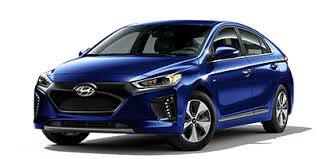Ireland faces a significant challenge in reducing greenhouse gas emissions, with the transportation sector being one of the most significant contributors. As a result, there has been a growing interest in alternative modes of transportation, such as hybrid and electric cars. In this article, we will explore the benefits and drawbacks of owning a hybrid or electric car in Ireland, as well as the current state of the market.
The Difference Between a Hybrid Car and an Electric Car
While both offer an alternative to traditional petrol or diesel cars, “hybrid” and “electric” describe very different technologies.
Hybrid cars combine a conventional gasoline engine with an electric motor. The electric motor is designed to assist the gasoline engine, improving overall fuel efficiency and reducing emissions. However, there are two distinct types of hybrid:
-
Self-Charging Hybrids (HEV): This is the most common type of hybrid. You do not plug this car in to charge it. Instead, its small battery is charged by the petrol engine and by cleverly capturing the energy that is normally lost during braking or slowing down. This makes them particularly efficient for stop-start city driving.
-
Plug-in Hybrids (PHEV): A PHEV has a larger battery that you can charge by plugging it into an electricity supply. This allows it to travel a significant distance (typically 40-60 km) on pure electric power. Once the battery is depleted, the petrol engine starts automatically, so you can continue your journey without interruption. This offers a blend of electric driving for daily commutes and the convenience of a petrol engine for longer trips.
On the other hand, a fully electric car, often called an Electric Vehicle (EV), has no petrol/diesel engine at all. It is powered solely by a large battery and an electric motor. To recharge the battery, you must plug the car into a power source, either a dedicated charger at home or a station on the public charging network. With zero tailpipe emissions, they are the cleanest option available.
Environmental Impact of Hybrid and Electric Cars
One of the significant benefits of hybrid and electric cars is their ability to reduce greenhouse gas emissions and improve air quality.
Full electric car produces zero exhaust fumes or emissions which has a direct and immediate impact on air quality, especially in towns and cities. While even hybrid cars offer a significant reduction in emissions compared to conventional petrol and diesel cars.
In a self-charging hybrid, the electric motor assists the petrol engine, particularly in stop-start city traffic, which cuts fuel consumption and lowers emissions.
For a Plug-in Hybrid (PHEV), the environmental benefits are fully reached when charged regularly, so many short journeys (like daily work commutes or school runs) can be run on the car’s electric power, resulting in zero emissions.
Availability of Hybrid and Electric Cars in Ireland

The popularity of hybrid and electric cars in Ireland has surged in recent years. This is reflected directly in new car sales, where electric and hybrid vehicles now frequently account for almost half of the market, demonstrating a clear shift in driver preferences.
This demand has led to a huge increase in the variety of models available. A few years ago, choices were limited to a handful of hatchbacks, but the market has now shifted significantly. Today, almost every major manufacturer offers an electric or hybrid option, with choices ranging from family-friendly SUVs and crossovers to compact city cars and premium saloons.
Some of the most popular models you’ll see on Irish roads today include best-selling fully electric SUVs like the Volkswagen ID.4 and Tesla Model Y, alongside highly efficient plug-in hybrids like the Toyota RAV4 and Hyundai Tucson.
Running Costs of Hybrid Cars
One of the main attractions of a hybrid car is the promise of lower day-to-day expenses compared to a conventional car.
While hybrids are more eco-friendly than traditional petrol or diesel cars, the financial benefits have changed. The purchase price for a new hybrid car can still be higher than its non-hybrid equivalent, and it is important to note that government purchase grants for new hybrids have now been discontinued.
The main saving comes from fuel efficiency. Because a hybrid’s electric motor assists the petrol engine, especially in stop-start city traffic, it uses significantly less fuel, with some real-world tests showing they can be over 20% more fuel-efficient than their petrol-only equivalents. This efficiency also leads to lower CO2 emissions, which in Ireland means a cheaper annual motor tax bill. Most hybrids fall into the lower tax bands meaning you can expect to pay between €140 – €170 per annum, depending on when the car was registered.
While routine servicing costs are very similar to a standard petrol car, it is worth remembering that although the complex hybrid systems are highly reliable, any specialist repairs down the line could be more expensive. Maintenance costs are initially aligned with their petrol or diesel equivalents, but it is worth noting that some specific hybrid components can be more expensive to replace down the line.
The resale value for used hybrids remains strong due to their popularity. According to a recent DoneDeal report from early 2025, it is now often the case that a second-hand fully electric car can be found for a lower price than a comparable used hybrid, which is a new and important factor for buyers to consider.
Running Costs Of Electric Cars
The savings become even more significant when you look at a fully electric car, where the running costs are exceptionally low. BEVs (Battery Electric Vehicles) run solely on an electric motor and rechargeable battery.
The cost savings you can make on fuel by driving an electric car can be significant. According to the SEAI’s Q3 2025 Fuel Price Comparison, the estimated cost to travel 100km is:
- Electric Car: €3.38
- Diesel Car: €8.60
- Petrol Car: €10.40
For an average Irish driver covering 18,000 km a year, this can translate to annual savings of well over €1,000. Using the public charging network is more expensive than charging at home but still offers considerable savings over petrol or diesel.
For most people, the main deterrent to getting an electric car is the worry about having to re-charge it while on the road. Modern electric cars have a much longer range than earlier models. here are currently over 2,500 public charge points across Ireland, and they can be found in car parks, retail and leisure venues and various on-street locations.
There are 70 Fast Chargers around the Republic of Ireland, primarily installed at service stations to facilitate longer journeys between major towns and cities. On average, a fast charge point can charge an electric vehicle up to 80% in as little as 25 minutes.
Charging time will depend on the model of the vehicle and how full the battery is when it’s plugged in. But can typically take from one to eight hours for a full charge.
Maintenance is another area where electric car owners see significant savings. With far fewer moving parts in an electric motor, there is much less to service. There are no oil changes, spark plugs, clutches, or exhaust systems to worry about. Servicing typically involves checks on the battery and electrical systems, alongside standard checks of brakes, tyres, and suspension.
Additionally, electric vehicles qualify for the lowest possible motor tax rate. This is currently set at €120 per year in Ireland, which is the lowest band available for any car.
Electric Vehicle Grants
To encourage drivers to make the switch, the Irish government offers several grants and tax reliefs, although it is important to note that these are now focused exclusively on new, fully electric vehicles (BEVs).
The Sustainable Energy Authority of Ireland (SEAI) provides grant up to €3,500 towards the cost of a new battery electric vehicle. To qualify, the car’s full market price must be between €14,000 and €60,000. You can find the full details of the scheme on the SEAI’s website.
In addition, there is a VRT relief of up to €5,000 for electric vehicles purchased and registered between 1 July 2021 and 31 December 2021. The government also provides a grant of up to €600 for installing an electric vehicle home charger.
These grants and incentives aim to encourage the transition towards sustainable transportation and reduce greenhouse gas emissions in Ireland.
No matter what type of car you’re considering, KennCo is always happy to give you a quick and secure quote.
To encourage drivers to make the switch, the Irish government offers several grants and tax reliefs, although it is important to note that these are now focused exclusively on new, fully electric vehicles (BEVs).
The main incentive is a direct purchase grant administered by the Sustainable Energy Authority of Ireland (SEAI). This grant is applied by the dealer at the point of sale, reducing the price you pay. For private buyers, the grant provides up to €3,500 towards the cost of a new BEV. To qualify for this support, the car’s full market price must be between €14,000 and €60,000. You can find the full details of the scheme on the SEAI’s website.
In addition to the purchase grant, there is also relief from Vehicle Registration Tax (VRT) for new electric cars. For BEVs with a market value up to €40,000, this relief can be as much as €5,000. The amount of relief is gradually reduced for cars valued between €40,000 and €50,000, and cars above that price do not qualify.
The SEAI also provides a grant to help with the cost of installing a home charger point. This support provides up to €300 towards the price and installation of a charger and is available for owners of both new and second-hand electric cars.
These grants and incentives aim to encourage the transition towards sustainable transportation and reduce greenhouse gas emissions in Ireland.
No matter what type of car you’re considering, KennCo is always happy to give you a quick and secure quote.
Looking to Save On Your Car Insurance?
At KennCo, our car insurance cover offers competitive rates and valuable benefits, including a replacement car as standard. Get peace of mind knowing you’re fully covered.
Get a Secure Quote Today
